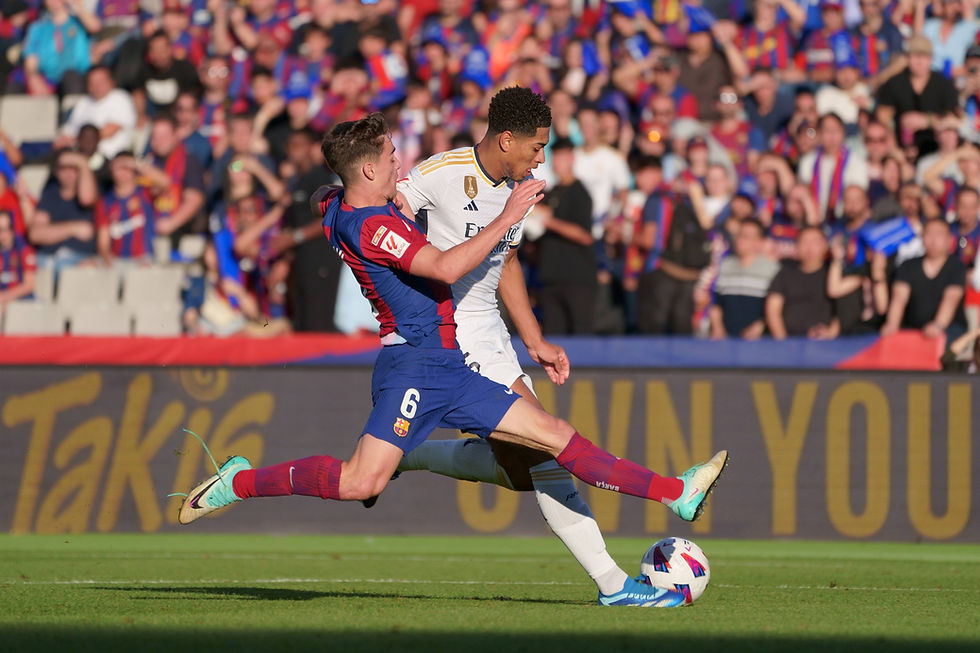Boehly’s Purchase of Chelsea is the Start of a New Chapter
- Greg Termolle
- Jun 1, 2022
- 3 min read
Updated: Jul 20, 2022
When Roman Abramovich became the owner of Chelsea in 2003, they had only won one Premier League title and zero Champions League or Europa League titles. Since then, Chelsea has won five Premier League titles as well as two Champions League titles and two Europa League titles. There is a very good argument to be made that Abramovich has been the best owner in European soccer since the turn of the century. Turning a middling club into a team that is regularly competing for Premier League and European titles is an immense achievement.
This leaves Todd Boehly and his consortium some big shoes to fill as they take over Chelsea after the deal has been officially completed for 2.5 billion pounds ($3.2 billion). There is an additional 1.75 billion pounds ($2.2 billion) which is a future investment in the club they are promising. This brings it to a grand total of 4.25 billion pounds ($5.3 billion). Even though the club needed to be sold and the bidders knew this, the huge number goes to show just how much money is involved when it comes to soccer and specifically the Premier League. It also shows that more and more Americans are becoming involved in the ownership of English clubs, Chelsea becomes the ninth club to be partly or wholly owned by Americans. The promise to spend is key because Chelsea has been a big spender under Abramovich. This isn’t Todd Boehly’s first endeavor in sports as he’s also a part owner of the Los Angeles Lakers and Los Angeles Dodgers.
The deal was completed relatively quickly after the UK government announced sanctions against Russian oligarchs that had ties to Putin, which involved Abramovich. Normally, a deal like this can take from nine months to a year, this deal was done in under three months. Boehly beat out 250 initial proposed buyers which were then narrowed down to 12 credible bids and then a shortlist of three bids. As highlighted in a Conduct Detrimental article by Ben Shrader, the UK decided to freeze Abramovich’s assets as well as not allow him to enter the UK under the sanctions. Abramovich then decided to sell Chelsea as he likely realized these would not be the last of the sanctions and being the owner of Chelsea would be much more difficult going forward. Having his assets frozen along with having financial troubles made running the club extremely difficult and hampered the club. The government was essentially in control of the club and it looked like it was going to be like that for the time being. Part of the government’s agreement to the deal is that Roman Abramovich would not profit from it, so the proceeds of the sale will be used for humanitarian purposes in Ukraine.
With Chelsea playing in the Champions League again next season and hoping to challenge for the Premier League title, Boehly will have a big summer ahead of him. With rumors of players leaving like Lukaku, Pulisic, Rudiger, Marcos Alonso, and captain Azpilicueta amongst others, Chelsea will have to look to spend to replace these players as well as bolster the depth of the squad with so many players potentially leaving. The situation with Abramovich certainly hindered their ability to enter into contract negotiations with players and allowed other teams to get a leg up with players whose contracts are expiring this summer. An example of this is defender Antonio Rudiger reportedly came to an agreement with Champions League winners Real Madrid while Chelsea were unable to enter into contract negotiations.
Boehly and his consortium will certainly have their work cut out for them between the money needed to be spent on transfers in addition to living up to the legacy that Roman Abramovich left. With more and more money being spent by Premier League clubs every summer, Chelsea will need to continue to spend as they have over the past two decades. Chelsea fans have come to expect success under Abramovich and they will continue to expect that as they’ve become one of the largest clubs in Europe.
Greg Termolle is a 3L at the Elisabeth Haub School of Law at Pace University. You can follow him on Twitter at @GregTerm.








